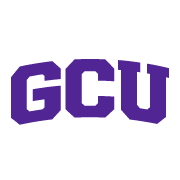Grand Canyon University
Grand Canyon University offers Accelerated BSN programs at 4 campuses in Arizona.

Grand Canyon University
Programs Offered
NCLEX Stats

Grand Canyon University
Accreditations
Programs Offered
NCLEX Stats
- NCLEX-RN pass rate
- 94.1%
- RN test takers per year
- 325
- RN rank (2024)
- #4
Program Length & Format
- 16 months
- Total degree credit hours: 123
- Accelerated portion credit hours: 63
- Coursework modality: primarily online with local in-person nursing skills labs and supervised clinical rotations
- Program sites: multiple state locations (Arizona, Colorado, Florida, Idaho, Missouri, Nevada, New Mexico, Utah)
Admission Requirements
- Non-nursing baccalaureate degree or minimum of 60 non-nursing college credits from an accredited institution
- Cumulative programmatic GPA of 3.0 or higher on the 60 credits applied to the ABSN program
- Cumulative prerequisite GPA of 3.25 or higher
- Background check required (background check result expires 6 months from date ordered)
Entrance Exams
- HESI A2 required with minimum scores:
- Reading Comprehension, Grammar, Vocabulary: 80%
- Math: 80%
- Human Anatomy and Physiology: 75%
Prerequisites
- Science prerequisites (grade C or higher, completed within 7 years): BIO-202, BIO-202L, BIO-205, BIO-205L, BIO-319, BIO-322, CHM-101, CHM-101L
- Developmental/behavioral prerequisite: PSY-357 (Lifespan Development)
- Prerequisite GPA requirement: cumulative prerequisite GPA 3.25 or higher; prerequisites must be completed within the past 7 years for transfer
Deadlines
- Program start frequency: three start dates per year at each ABSN site
- Prerequisites and required transfer credits must be completed prior to starting core nursing courses
Application
- Complete online inquiry form and application for ABSN program
- Official transcripts from each accredited institution attended
- HESI A2 score report
- Order Grand Canyon University background check prior to program start
Selection Process
- Pre-admission interview: informal phone interview scheduled by admission counselor
- University counselor reviews unofficial transcripts and creates a pre-enrollment plan
- Final admission requires submission of official transcripts and meeting all program requirements
Cost & Financial Aid
- Campus tuition rate: $850 per credit hour for nursing courses
- Prerequisite course rate: $425 per credit hour
- Estimated tuition for accelerated portion (63 credits at $850/credit): $53,550 (does not include ancillary fees)
- Ancillary fees may include health insurance, clinical placement software, books and supplies, and graduation fee
Clinical & Simulation Lab
- Simulation facility: Lopes Center for Nursing Simulation
- Clinical location: supervised clinical rotations at local healthcare facilities near ABSN sites
- Representative clinical hours by course:
- NSG-300C (Foundations clinical): 56 hours
- NSG-320C (Adult Health Nursing I clinical): 132 hours
- NSG-430C (Adult Health Nursing II clinical): 60 hours
- NSG-322C (Behavioral Health clinical): 48 hours
- NSG-444C (Transition to Practice clinical): 120 hours
Credit Transfer
- Minimum transferable credits required: 60 credits from an accredited institution for secondary applicants or completion of a baccalaureate degree
- Prerequisite credits eligible for transfer only if completed within 7 years
- Transfer credit evaluation performed by university counselor upon transcript review
Contacts
- Campus address: 3300 West Camelback Road, Phoenix, AZ 85017
- Admissions contact method: online inquiry form and assigned ABSN university counselor for pre-admission interview and pre-enrollment planning

Grand Canyon University - Sun City
Programs Offered
NCLEX Stats
- NCLEX-RN pass rate
- 93.1%
- RN test takers per year
- 117
- RN rank (2024)
- #5
- 16-month program: Offers a condensed timeframe to complete your degree.
- Hybrid format: Balances online coursework with in-person clinical rotations.
- Clinical placements: Occur in hospitals and healthcare facilities throughout the Phoenix area.
- Program staff provides support for finding and securing clinical placement.
- Bachelor's degree from an accredited institution.
- Minimum GPA (check GCU website for specific requirements).
- Official transcripts.
- TEAS exam score.
- Application fee, background check, drug screen, and CPR certification.

Grand Canyon University - Tucson
Programs Offered
NCLEX Stats
- NCLEX-RN pass rate
- 97.9%
- RN test takers per year
- 60
- RN rank (2024)
- #1
The Accelerated Bachelor of Science in Nursing (ABSN) program at Grand Canyon University’s Tucson campus is designed for students who want to transition into a nursing career quickly. This 16-month, full-time program is intended for individuals who already have at least 60 college credits or hold a non-nursing bachelor’s degree.
The Tucson campus is located at 3500 N. Campbell Ave., Tucson, AZ, which is central and accessible for students in the region, making it a convenient option for those who wish to study in Tucson.
Admission Requirements
To be eligible for the Tucson ABSN program, applicants must meet the following criteria:
- Academic: A minimum of 60 college credits with a cumulative GPA of 3.0 or higher. Specific prerequisite coursework may be required, depending on the applicant's previous academic background.
- Health and Background Checks: A health screening, including immunizations, and a background check are mandatory before enrollment.
- English Proficiency: For non-native speakers, proof of English proficiency may be required.
Entrance Exam
While the program emphasizes prior academic performance, details on specific entrance exams like the TEAS are not explicitly required but may be recommended as part of the assessment process.
Prerequisites
Applicants must have completed courses in areas such as human anatomy, physiology, microbiology, and chemistry. These are essential to ensure students are prepared for the rigorous nursing curriculum.
Program Format and Clinical Rotations
The ABSN program is delivered in a hybrid format, combining online coursework with in-person labs, simulations, and clinical rotations. Clinical rotations are conducted at healthcare facilities in the Tucson area, offering students hands-on experience in diverse medical settings.
Enrollment Deadlines and Start Dates
The program offers three start dates per year, allowing for flexibility in application timing. It is advisable to contact the admissions office for specific deadlines, as they may vary depending on the start date.
Tuition and Fees
The estimated tuition for the ABSN program is approximately $53,550, excluding additional fees for books, supplies, and health insurance. Financial aid options, including scholarships and loans, are available to eligible students.


